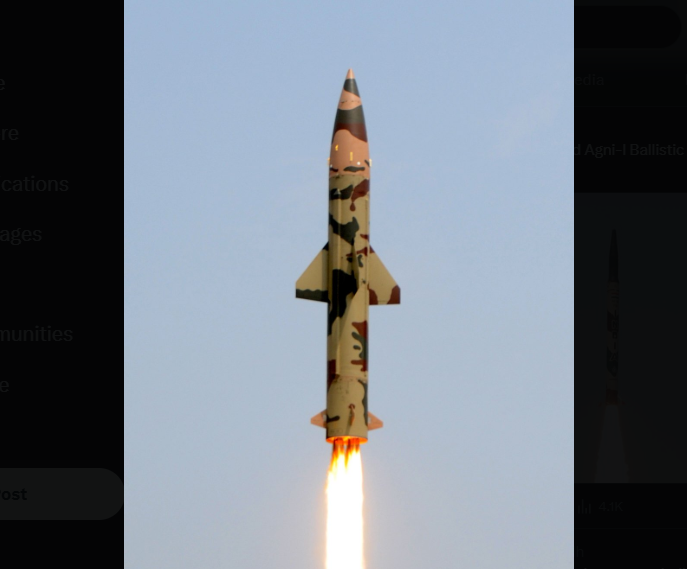Prithvi-II and Agni-I Ballistic Missiles

- 19 Jul 2025
In News:
India recently conducted successful test-firings of its nuclear-capable short-range ballistic missiles Prithvi-II and Agni-I from the Integrated Test Range (ITR), Chandipur, Odisha. The trials aimed to validate operational readiness and technical reliability of India’s strategic missile systems.
These tests follow closely on the heels of the Indian Army's successful high-altitude test of the Akash Prime air defence system in Ladakh, underscoring India’s advancing indigenous defence capabilities.
Strategic Significance
- Conducted by: Strategic Forces Command (SFC) under routine training and validation exercises.
- Developed by: Defence Research and Development Organisation (DRDO) under the Integrated Guided Missile Development Programme (IGMDP).
- Purpose:
- To validate accuracy, technical parameters, and combat readiness.
- To reinforce India’s nuclear deterrence and second-strike capability.
- To ensure strategic preparedness post the May 2025 Indo-Pak conflict.
Prithvi-II Missile: Key Features
|
Parameter |
Details |
|
Type |
Short-range, surface-to-surface ballistic missile |
|
Range |
~350 km |
|
Propulsion |
Liquid-fuelled |
|
Payload Capacity |
Up to 500 kg |
|
Warhead Type |
Conventional and nuclear |
|
Navigation |
Advanced inertial navigation system |
|
Deployment |
Road-mobile launcher |
|
Speed |
Above Mach 1 |
|
Role |
Part of India’s tactical nuclear strike capability |
Agni-I Missile: Key Features
|
Parameter |
Details |
|
Type |
Short-range, single-stage ballistic missile |
|
Range |
700–900 km |
|
Propulsion |
Solid-fuelled |
|
Payload Capacity |
Up to 1,000 kg |
|
Warhead Type |
Conventional and nuclear |
|
Accuracy |
High precision with advanced guidance |
|
Induction |
Early 2000s, operational with Indian Army |
|
Strategic Role |
Integral to India’s minimum credible deterrence posture |
